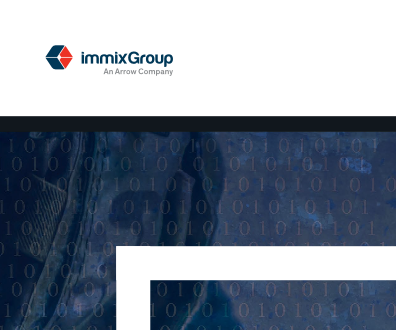Brand names prove hard to shake in acquisition requests
Despite rules, agencies make their preferences known.
Agencies still prefer purchasing brand-name products, even after a pointed reminder earlier this month from the Office of Management and Budget about rules against specifying them in acquisition requests.
On April 11, David Safavian, chief of the Office of Federal Procurement Policy, and Karen Evans, chief of e-government initiatives, sent a memo to federal executives "requesting that agencies take steps to mitigate brand name usage." Instead, they said, agencies should describe what they need without naming names.
The use of brand names is discouraged largely because it reduces the chances that lesser known, smaller businesses can win government contracts.
"In my opinion, the biggest problem with requesting specific brand names … is it does have a negative impact on competition, and it tends to have a disproportionate impact on small businesses," said Sean Bamford, assistant counsel at the Defense Supply Center Philadelphia, which buys about $12 billion worth of supplies annually for the Defense Department.
The memo was widely embraced as a positive step. "I would have sent it out myself," said Allan Burman, president of the federal arm of Jefferson Consulting Group and former OFPP head.
Even big companies such as Oracle, which benefit when agencies specifically request their products, cast the memo in a positive light: "Agencies have to choose technology based on value," said Michael Sperling, spokesman for Oracle Corp. He added that the memo should not affect the company because it only reinforces a rule that already exists.
Even though the rule exists, it is not always heeded. A basic search on FedBizOpps, an online market for government requests and suppliers, shows Air Force requests for Panasonic Toughbook computers and Office Depot furniture as well as an Army request for a Toshiba projector and Canon digital camera.
A spokesman for the Air Force said that in the case of the Panasonic Toughbook computers, which are used on the B-1 aircraft to collect data, other types of laptops had been tested "but did not withstand the conditions of use," and as a result, specifying the brand name was legitimate and abides by Defense acquisition regulations. He did not know why Office Depot was specified, but said he believed it was for similar reasons.
An Army spokeswoman pointed to a clause in the Army solicitation that said, "Like or equal brands will be acceptable." The Army uses the brand name as a shorthand way of giving vendors an accurate description of what it wants, she said.
In certain circumstances, such as when a certain brand is "essential to the government's requirements," federal acquisition regulations allow agencies to specify desired brand names.
The Commerce Department, for example, posted a notice last week specifying that it intended to award an information technology contract to Oracle and PeopleSoft without competition among other vendors because "we have determined that the government would incur a substantial duplication of costs to develop this application using another vendor solution."
Safavian said several groups, including the National Office Products Alliance, told OMB that brand names were being specified in agency requests. "Any time we limit choice, we limit opportunities for small business," he said. "This was particularly true in the office supplies context, in which contract solicitation utilized product numbers from a major office chain, thereby precluding small businesses from competing," he added.
Mark Heuer, federal business manager for office supply provider BCOP Federal, which is affiliated with OfficeMax, said that sometimes the problem comes from individual employees themselves, and not necessarily official agency requests. His office catalog, which is used by agencies including the Agriculture Department, contains many items from small businesses, but they are often overlooked in favor of brand-name items in the catalog.
"People just buy brands they're most familiar with," he said.
Pat McConnel, program manager for acquisition strategic sourcing and enterprise spend management at the IRS, said his agency specifies Microsoft XP operating systems because just specifying generic requirements might result in an unwieldy combination of Microsoft and Linux products, for example.
"For some products, there may be no substitute in your environment," he said.
Still, the memo may make agencies think twice before specifying brand names in new solicitations. Bamford said the brand name issue rarely comes up at DSCP, but that as a result of the OMB memo, the center is revisiting the issue to check for any conflicts with the rules.
NEXT STORY: Doobie-ous Distinction






